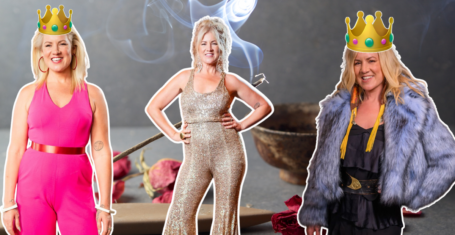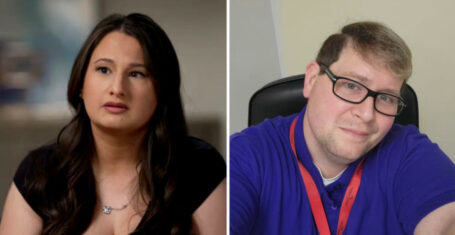
CUBC, The Olympics and Careers: An interview with Tom George
Tom George is 6 seat for the Boat Race on Sunday
It’s a picturesque Spring day and the river by Putney Hard is packed with rowers and families going for a Sunday stroll along the river bank. I gaze at them through the window at the Crabtree Boat Club, where I have been sitting on a cracked leather sofa, surrounded by piles of kit, wellies and empty food packets. I’m there waiting to interview Team GB and current Cambridge University Blue Boat rower Tom George.
The room is not empty of people; the Dutch National Team, whom they would be rowing against the next day on The Championship Course, and whom CUBC would win against, are also there with me. The Dutch are waiting for the CUBC team to finish their first session so that they can borrow CUBC’s coaching launch for their own session. The tall men chatter quietly to one another, each taking up a loveseat as though it were their own armchair.
After a few minutes, the CUBC team walk in, relaxed, yet with a mission to take a shower as fast as they can before grabbing something to eat during their break. Tom is one of these rowers, and he immediately gives me a friendly smile before quickly getting ready for our interview. I go back to looking out at the river as the rowers, not known for being demure, strip off their kit for casual clothes.
Radley, Princeton and Cambridge
Tom suggests a local cafe and orders what he calls a snack, but what I would call a proper meal. He will inhale this within two minutes during our interview. Tom has been rowing for more than ten years. He first started at Radley College and continued at Princeton University having graduated with a degree in Politics in 2018. Since graduation, he has been rowing full-time with Team GB, with whom he won a Bronze medal in the Men’s eight at the Tokyo Olympics. He applied to Cambridge University with the hopes of laying the groundwork for a future career path and is currently studying for a degree in Real Estate Finance.
Before he applied, he spoke to one person about Cambridge, who would give him the straight answer he was looking for: his former coach Jurgen Grobler. It was Jurgen who strongly encouraged him to apply for his course at Cambridge and who acted as a sounding board for Tom’s fears surrounding going back to university. Tom stated, “The guy knows. He’s been around for so long. If he thinks it’s the right decision, it probably is, if he doesn’t, then that’s something I need to consider. So it’s just nice to talk to him as someone who I’ve seen as a big mentor and obviously my coach.”
Tom also speaks well of his current coach at Cambridge, Rob Baker. He has enjoyed Rob’s approach to coaching and the positive atmosphere that has been created within the team, adding that he has taken delight in his time at Cambridge and being part of the CUBC team. He finds his Cambridge experience “unique” and likes how training for The Boat Races is a common goal, rather than “training to race a 2k or the end of this distance.” He states that “it’s a totally different race and it’s a totally different approach. And then also you mix in balancing academics and suddenly there is so much more to work through.” He finds the addition of an entire course load and “maybe a bit of a social life” the biggest difference between rowing with Team GB and Cambridge, adding that the overall time spent rowing was pretty similar.
“Totally knackered”
The team schedules their training sessions around classes, with the men’s crew hitting the water or gym by 6am so that the students can make it into class by 9am followed by an afternoon session. For the majority of the rowers, their entire time will be eaten up between training and studying. During the year, Tom has found himself “totally knackered” but never not intellectually stimulated due to the academic environment he is in, adding that he loves the range of people he meets at Cambridge, who are all studying so many different topics. His roommate is one such example, a student who is studying Parkinson’s Disease and with whom Tom sits for hours discussing his research.
The Boat Race
But it is The Boat Races that are most on his mind. It is a unique course, which makes it an alluring prize for many rowers. Unlike the Olympics, where the course is 2,000 meters, and where each crew has their own straight lane, the Championship Course is more similar to a tangled line of string, where crashes occur as the two teams battle it out for the fastest flow of water. There is no heat, there is no semi-final, you are either a winner or not. For Tom, he states “you have to decide to have your best race there and the record’s pretty ruthless; Oxford or Cambridge win and no one remembers the rest of it.”
At the Olympics, the crowds don’t feature until the very end of the race. In contrast, at The Boat Races, hundreds of thousands of people gather together and cheer the teams on as soon as they step out of the Boat House. To that end, Tom has taken advice from my husband, James Cracknell, who participated in The Boat Races in 2019 and the Olympics in 2000 and 2004, on how to manage his adrenaline spikes on the day and how to deal with the throngs of supporters. He says the process will be interesting on how to negotiate this input both personally and as a team, believing that there is a lot to be gained from managing it well.
Life post-race
And what about life after April 3rd? To start, Tom will rejoin Team GB and aim for the 2024 Olympics. The first stop is trials which occur over Easter weekend where he will be rowing in a pair with his teammate Ollie Wynne-Griffith. He would also love to be able to do an internship this summer if the time allows. Team GB is big on rest and recovery, so Tom is uncertain how he will manage this on top of training.
Once the 2024 Olympics are over, he is looking forward to working in the world of Real Estate Finance. “At some point, you’ve got to buckle down and work hard” and adds that “I’m quite excited to be able to go skiing, go away for a weekend, stuff like that; I’ve missed a lot of weddings. Like I’m quite excited to not miss weddings.” We then take a detour for about ten minutes where he asks me about my own wedding and the logistics therein. It is a topic that he is highly interested in and I give him the rundown on how my own wedding was planned, and say that one should think about what one’s priorities are for the wedding (a delicious cake, a dream location, etc.) and build around that. It is advice that he agrees with.
We steer back onto rowing. I ask him if he has any advice for those rowers who were considering applying to Oxbridge. “Definitely do it” is his response, “try and connect with as many people as possible” as the rowing alumni network is filled with many successful people wanting to help. His second piece of advice is, “I would say that you should just throw yourself into everything you can do if you do get in because in my case I only get a year and it’s pretty fun to be able to do something a bit different and my rowing hasn’t suffered as a result of it.” His last piece of advice, and advice that he will share with his fellow Team GB rowers planning to do the 2028 Olympics and beyond is, “You should consider applying to Cambridge for the first year of that cycle. I think it’d be really good for you. Um, just to get away from Caversham to experience something different. Do the boat race. Take care of your future. Start looking ahead.”
It’s great guidance from someone who has accomplished so much and who will continue to do so.
Featured Image Credits: Wikimedia Commons via Creative Commons License









































